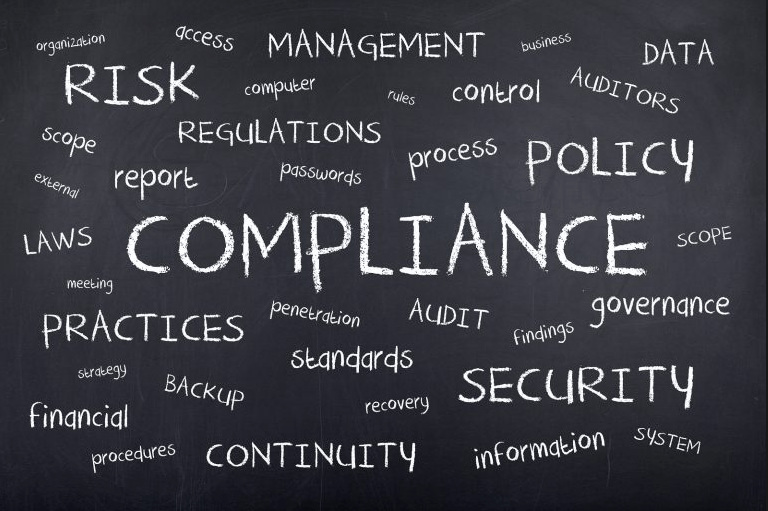Understanding the Gravity of the Situation
After just coming off an almost 6-year jaunt as CAMLO for a major crypto exchange and being in the trenches of AML and ATF programs all that time, I’ve seen my fair share of regulatory missteps, debacles, and debauchery in the space. But the recent case of Binance, spearheaded by its CEO Changpeng Zhao (CZ), really stands out for me. I, along with many others could see it coming, but kept asking, when!
Their guilty plea to the U.S. Department of Justice, culminating in a combined $4.35 billion in fines, is not just another headline its vindication that the law will eventually catch up to you. It’s a stark reminder of the high stakes in our field for the smaller players versus the larger ones. As another compliance officer put it to me the other day, and I will paraphrase, “we are seeing the ‘Too Big To Fail’ (TBTF) scenarios now playing out in the crypto space. Remember, not one bank executive went to jail during the 2007-2008 US financial crisis, and my bet is that we will see the same for CZ and his cronies.” I certainly hope this is not the case as that would be a very say day and only put more credence on corporate greed to get to that TBTF level as fast as possible, no matter what it takes.
Where Binance Fell Short
The charges against Binance and CZ spanned anti-money laundering, unlicensed money transmitting, and sanctions violations. But these aren’t just checkboxes in a compliance form; they’re the bedrock of trust in our industry. Binance’s admission of these failures speaks volumes about the gaps in their AML and ATF frameworks. I would hope this isn’t the case for many others, but sadly, I will have to admit that there are many in the crypto spaces that put greed and profits above AML/ATF compliance.
The Devil is in the Details
KYC/KYB Lapses: Every seasoned compliance officer knows that KYC and KYB aren’t just regulatory buzzwords; they’re essential tools. Binance’s inadequate implementation of these processes was a critical error, leaving the door open for misuse of their platform.
SARs – The Missed Alarms: SARs are our canaries in the coal mine. By not filing over 100,000 SARs, Binance didn’t just miss a few alarms; they ignored a symphony of warning bells.
Reaction Over Action: Waiting for law enforcement to knock on your door before taking action is a classic case of too little, too late. Proactive compliance is key, something Binance learned the hard way.
The Gap Between Claims and Reality: Claiming to fight financial crime while facilitating billions in illicit funds is like trying to put out a fire with gasoline. Binance’s contrast in public claims and actual practices was, frankly, disheartening.
The Shifting Sands of Compliance Tools
As an AML/ATF compliance professional, I’ve always advocated crypto companies leveraging tools like Chainalysis, Elliptic, Ciphertrace, Breadcrumbs, or the like. They’re not just tools; they’re lifelines in maintaining integrity of dealing with crypto transactions. Binance’s initial adoption and subsequent rejection of some of these tools, as they started revealing the company’s own compliance failures, was a disappointing pivot. It’s a classic example of favoring convenience over commitment.
The same could be said for OFAC and sanctions screening and ongoing monitoring requirements, using such real-time low-friction tools powered by AI and decisioning technologies as KYC2020’s DecisionIQ would have saved Binance time and effort, as well as ensure they didn’t deal with known terrorist persons or entities. Another grave mistake that could have saved them billions, literally!
The Ripple Effect for others
Janet Yellen’s comments on adhering to U.S. financial system rules aren’t just for show. The consequences Binance and CZ faced are real and severe. In the world of compliance, there are no shortcuts. This is another shot off the bow from the regulator, and those that are TBTF may take head, but probably not enough as they will most likely have the money to bail themselves out. Is the smaller players that will receive the brunt of this call as they will be scrutinized not only by their regulator, but their partners, banks, and examiners, to the point many will probably concede and go out of business.
A Word to the Smaller Players
You might not be operating on the scale of billions like Binance, but the lessons are just as relevant. Robust KYC/KYB processes, timely SARs filing, proactive compliance, and transparent practices are not just for the big players. They’re the foundation for anyone in this industry who wants to have a great business over one that values greed above all else.
The Binance saga is more than a cautionary tale; it’s a blueprint for how not to navigate the intricate world of financial compliance, or how to navigate it if you take away the lessons learn. For those of us who are not in the TBTF regulated entity category, it’s a clear signal that compliance is not a burdensome chore but the backbone of sustainable and ethical business. Let’s take these lessons to heart and strive for a higher standard in our increasingly scrutinized industry. Let’s raise the bar and not succumb to the greed factor! Let’s really do right by our clients and do our best to combat ML/TF.
The good news is that this message is not lost, and there are plenty of Cryptocurrency players that have compliance and responsibility to fight financial crime in their ethos. Take for example CoinChange and why/how they adopted a culture of compliance without compromising their business goals.
Read the Coinchange Success Story – Streamlining Compliance with KYC2020 and watch the Video








